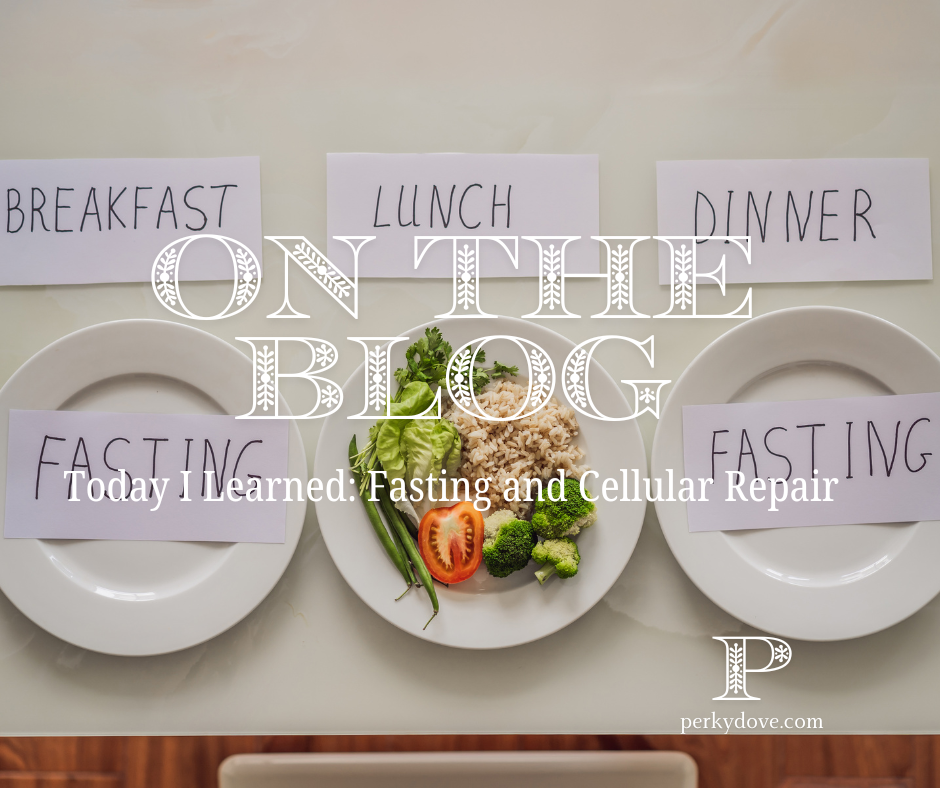We use affiliate links. If you purchase something using one of these links, we may receive compensation or commission.
The Surprising Science of Fasting: A Cellular Repair Lesson
Today I Learned that fasting triggers a remarkable process called autophagy, where our cells actually break down and recycle damaged parts. It’s like an internal ‘cleaning crew’ that our body activates when we’re in a fasted state. By recycling damaged cellular materials, autophagy may help reduce the risk of chronic diseases and promote longevity!
1. What Is Autophagy?
Autophagy is a natural process that means “self-eating” in Greek. When we fast, our cells go into a maintenance mode and start to ‘digest’ old, damaged parts—think of it as decluttering on a microscopic level. This process is critical for cellular health, as it removes debris that can accumulate and cause dysfunction over time.
Aha Moment:
Imagine that autophagy is a natural recycling system that cleans up all the “junk” our cells accumulate, helping them function better. This repair process is only triggered under specific conditions, like fasting!
Heal Your Body Through Intermittent, Alternate-Day, and Extended Fasting
2. How Fasting Activates Autophagy
Fasting reduces insulin levels, which is key to activating autophagy. Typically, our cells focus on growth and energy production, but when nutrients are scarce (like during fasting), they switch gears and focus on repair.
- Short-term fasting (12-16 hours): Light autophagy begins, with cells starting the cleaning process.
- Extended fasting (24+ hours): Autophagy ramps up significantly, deeply cleansing and repairing on a cellular level.
Aha Moment:
By reducing the body’s need to process food constantly, fasting provides it with a chance to rest and repair itself.
3. Autophagy and Disease Prevention
Research suggests that autophagy can potentially reduce the risk of several chronic diseases by removing damaged cellular parts and pathogens:
- Heart Disease: Removing old, damaged proteins may protect blood vessels.
- Neurodegenerative Disorders: Autophagy helps clear out proteins that can cause brain disorders like Alzheimer’s.
- Cancer: Autophagy may help prevent cancer cells from forming by repairing damaged DNA.
Aha Moment:
Think of fasting as a preventive maintenance strategy for your body—it’s helping you stay in optimal shape over time by reducing risks associated with age-related diseases.
4. Boosting Autophagy Safely
While fasting has incredible benefits, it’s essential to practice it safely. Here are some tips for beginners:
- Start with Intermittent Fasting (12-16 hours): This is an easy introduction and still activates autophagy.
- Stay Hydrated: Water helps remove toxins from the body.
- Break the Fast Gently: Reintroduce food slowly with nutrient-dense options to support cell repair and reduce stress on the body.
Aha Moment:
Fasting doesn’t have to be extreme to be effective. Even moderate fasting can bring real cellular benefits without over-stressing your body.
Final Thoughts
This natural self-cleaning process is something our ancestors likely benefited from regularly due to limited food access. Modern-day fasting is a way to tap into this ancient wisdom and keep our cells healthy. Next time you consider fasting, remember that your body is taking that time to refresh and repair on a microscopic level—leaving you feeling renewed!







